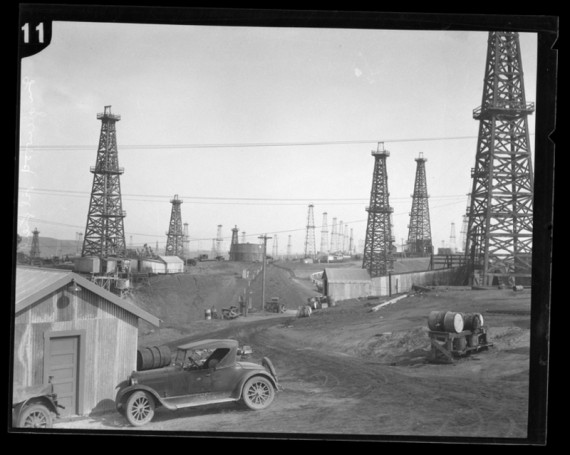
It's been a disheartening summer for those seeking to regulate fracking in California.
Back in May, the California Senate rejected SB 1054, which would have required companies to give property owners notice that they were going to engage in hydraulic fracturing to tap oil deposits on or near their land.
But hope seemed momentarily at hand on July 2, when the Senate Environmental Quality Committee approved AB 972. The bill, by Assemblywoman Betsy Butler (D-Marina del Rey), sought to "prohibit the supervisor and the district deputy from approving the drilling of a well in which hydraulic fracturing...is used or is proposed to be used in the production of oil and gas" until regulations governing hydraulic fracturing were first adopted. The moratorium passed through the committee along party lines, with 5 Democrats voting for it and 2 Republicans voting against it.
But then the bill headed to the Senate Appropriations Committee for further hearings. There, both it and AB 591, another bill seeking to regulate fracking, met their doom. AB 591 would have required well owners and operators to compile "a list of the chemical constituents used in the hydraulic fracturing fluid and the amount of water and hydraulic fracturing fluid recovered from the well" and to submit that information to the State Oil and Gas Supervisor.
According to legal blog JD Supra, "both bills had been placed on the committee's suspense file in prior votes." They then stalled in committee last week and did not get referred to the full Senate, "effectively killing both fracking bills for the current legislative session, if not permanently."
The L.A. Times and others have noted that stiff opposition from the oil industry -- which had earlier succeeded in killing SB 1054 -- played a significant role in the shelving of the current legislation.
In analyzing the failure of both bills, JD Supra's K. Eric Adair makes the case that the legislature has likely opted to defer to the Division of Oil Gas and Geothermal Resources (DOGGR). He argues that, outside of the environmental community, there wasn't enough (organized) public support to counter the oil and gas lobby or within the administration to swallow the projected $9 million in delayed or lost revenues for the state, had the moratorium gone forward. He further feels that the Brown administration and the legislature are now free to apply pressure to DOGGR to expedite the process of developing regulations on fracking currently underway.
Having attended some of the events where DOGGR has met with the community (see here, here, and here) and seen them in action, it is hard to have much confidence in the process. The meetings held this year were DOGGR's first attempt to connect with the community since its creation in 1915. Although representatives readily acknowledged their failure to do outreach to attendees at a March meeting in Baldwin Hills and professed a commitment to working with the community, few of those gathered there or at other outreach events seemed convinced that DOGGR was sincere. Instead, they have continued voice concerns about the will and ability of DOGGR to regulate the very oil and gas companies whose fees support the agency's operations.
According to their website, DOGGR has completed the first part of the regulatory process -- the listening tour. If you have a comment you would like to submit, you can still send your thoughts here: comments@conservation.ca.gov and keep up with DOGGR's doings here.





